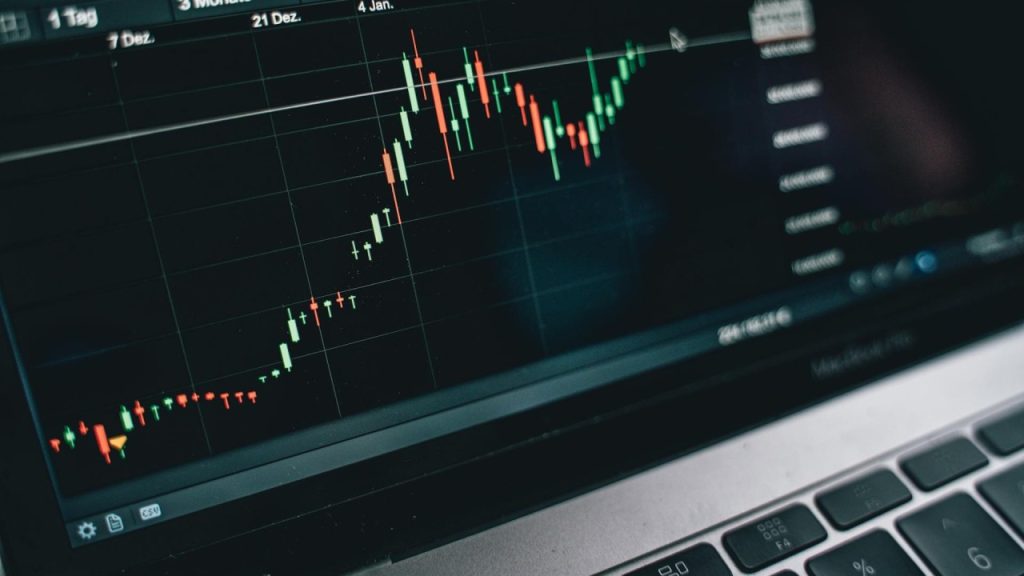
The Reality Behind Demo Accounts & New Trader Struggles
In today’s increasingly complex and fast-paced financial markets, demo trading accounts have become the go-to tool for anyone starting their trading journey. Whether it’s Forex, stocks, or crypto, most traders begin with demo accounts before daring to enter the “real battlefield.”
But here’s a truth many don’t want to admit:
Demo trading isn’t just a learning tool — it’s a psychological trap.
A trap so subtle that it leads over 90% of traders to develop a false sense of skill and control. 😱
At AI Prop, we’ve seen thousands of traders transition from demo to real trading with confidence, only to face harsh reality checks. The biggest pain isn’t losing money — it’s the emotional crash when you realize your “demo success” was nothing but illusion.
If you’ve ever asked:
- “How long should I train on demo?”
- “Why do I feel so confident on demo but fail with real capital?”
- “Is demo trading helping or hurting me?”
This article will give you the answers you need — backed by insights, case studies, and real trader psychology.
1. Demo Trading: A Learning Tool or a Dangerous Illusion? 🎯

What is Demo Trading?
It’s a simulated trading environment where you use virtual money in real market conditions. Ideal for learning the platform, testing strategies, and practicing executions — without financial risk.
But here’s the trap:
Because no real money is involved, traders don’t feel the pressure. This creates a false sense of control and often leads to reckless behaviors like:
- All-in trades
- Ignoring stop-losses
- Deviating from strategy without consequence
Why Demo Makes You Overconfident:
- There’s no fear of loss, so emotional discipline isn’t developed.
- Risk management often gets ignored.
- You never build the emotional stamina needed for real trading.
Should You Stay on Demo Too Long?
Many believe “more time on demo = better trader.”
But in truth, overtraining on demo only deepens the illusion.
Demo should be a stepping stone — not your comfort zone.
2. Demo vs Live vs Funded Accounts – What’s the Real Challenge? 🏆

Demo Account:
- No real financial risk
- No emotional pressure
- Unrealistic confidence due to risk-free environment
Live Account (Personal Capital):
- Real emotional highs and lows
- Fear of loss makes decision-making harder
- Builds real skill in managing emotions and capital
Prop Firm Funded Account:
- Dual pressure: strict rules + capital performance
- High stakes with big capital — but under constant evaluation
- Requires stability, consistency, and mental toughness
How Long Should You Use Demo?
Based on expert experience at AI Prop:
Only until you can:
- Navigate your platform smoothly
- Fully understand and apply your chosen strategy
- Maintain a detailed and consistent trading journal
Then, it’s time to switch to a small live account or take a prop firm challenge.
3. Identifying and Escaping the Demo Trap 💡

Warning Signs You’re Stuck in the Trap:
- Overconfidence after demo success
- Casual, careless trades with no real pressure
- Immediate losses once you switch to real or funded trading
Why Demo Leads to Complacency:
- No “pain of loss” to build mental strength
- No real motivation to review mistakes seriously
- False safety slows down emotional growth
Risks of Staying Too Long on Demo:
- Procrastination becomes a habit
- Reckless habits form that are hard to break in real trading
- You avoid the very challenge that makes you better
How to Escape the Trap:
- Set goals for your demo phase: platform, strategy, journal
- Limit your demo time (2–3 months max)
- Transition to small live trading or prop challenge as soon as you’re ready
- Use a detailed journal — track both success & failure
- Join a trading community or use AI tools for objective feedback
4. Real Stories: From Demo to Real-World Success 💬
Case Study 1 – The Demo Prodigy Who Failed:
A 25-year-old trader dominated demo accounts with impressive results. He entered a prop challenge full of confidence. But under time pressure, strict rules, and real emotional exposure — he cracked. Within two weeks, the account was wiped.
Case Study 2 – Smart Transition to Real Success:
A trader in Hanoi spent just 2 months on demo, then moved to a small live account to build emotional control. With a disciplined journal and lessons learned from each trade, he passed his first prop challenge with flying colors.
Key Takeaways:
- Demo is a starting point, not your final destination
- The demo psychology trap is the biggest blocker to growth
- To level up, you must step out of your comfort zone
5. How to Maximize Demo Without Falling into the Trap 📝
Set measurable goals for your demo phase:
- Master the platform
- Validate your strategy
- Create a detailed trade journal
Apply a demo time limit:
- 2–3 months max
- Avoid hiding behind “more practice” as an excuse
Plan your transition:
- Small live account or prop firm challenge
- Focus on discipline and emotional control, not profit
Build a performance review system:
- Analyze your trades with more focus on the process than outcome
- Track what works and what needs fixing
Seek community support or mentoring:
- Don’t trade in isolation
- Use AI-based evaluation tools or mentors for objective guidance
Break Through the Demo Trap — with AI Prop 🚀
At AI Prop, we know every trader’s journey is unique — but almost all face the same challenge: the Demo Psychology Trap.
Don’t let fake wins on demo accounts fool you.
Don’t let comfort become your cage.
Demo is just a training ground — not your career.
Ask yourself:
Have you been on demo too long?
The answer might be: YES.
What you should do:
Switch to a small live account or join a prop firm challenge as soon as you’re mentally and technically ready.
Why demo is dangerous:
It doesn’t build pressure, it doesn’t build control — two key factors you need for real success.
When is demo enough?
When you’ve mastered your tools, strategy, and journaling system — it’s time to move on.
AI Prop isn’t just a funded trading platform.
We are your partner in growth — from demo to professional.
We help you conquer the market by first helping you conquer yourself.

















